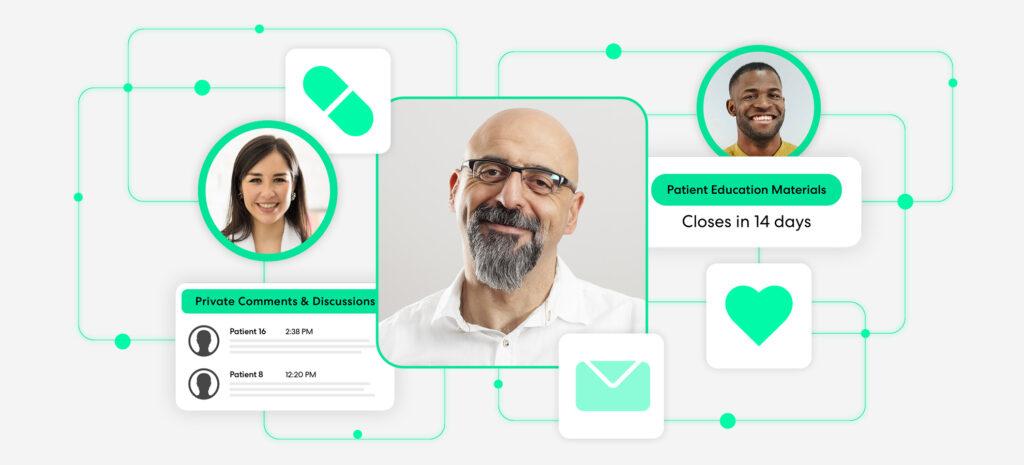Do you know the difference between a decentralized clinical trial and a digital clinical trial? While there can be overlap, the two concepts are distinct. Let’s discuss the impact of digital clinical trials and examine the pros and cons.
What is a digital clinical trial?
A digital trial is defined by the method used to capture the clinical trial data. A proper digital clinical trial is one where all data are captured without using paper forms during the study. The defining feature is the data capture method of the study. Any clinical trial can be digital, regardless of the location of clinical visits.
Some key considerations for digital trials include the following:
- Data integrity
- Regulatory compliance
- Complete audit trails back to source records, such as electronic medical records, patient records, and lab results
How is a digital trial different from a decentralized clinical trial?
Digital trials and decentralized trials share some common features. One of the benefits of decentralized clinical trials is that the approach offers flexibility for investigators and patients. One aspect of this could be using digital means to collect data. In fact, decentralized clinical trials often depend on using digital systems, such as:
- Virtual site visits
- Electronic consent, or eConsent
- Electronic patient-reported outcome assessments or ePRO
- Digital sensors and monitoring devices
While these digital tools are used in decentralized trials, they aren’t required. A decentralized trial could be conducted without using digital tools – via telephone, home visits, and traditional paper forms. However, it would be rare for a trial in this day and age to completely exclude digital tools, and the digital aspect is implied by using the term decentralized. This concept is akin to digital solutions that address many challenges in decentralized healthcare, including telehealth apps and wearable monitoring devices.
One of the benefits of hybrid clinical trials is the ability to collect and use real-world data and evidence, which can be collected via digital means. In this way, a hybrid clinical trial could also be digital in terms of the tools used to collect information.
What tools are needed in digital clinical trials?
Many of the tools required to conduct a successful digital clinical trial are very familiar to consumers and professionals. Tablets, smartphones, smartwatches, other wearable devices, home computers, and laptops can all be used to collect and submit trial data. In many cases, trial participants use their own devices to download apps and provide information to investigators. Other trials might issue tables or wearable monitors that are returned when the study concludes. Investigators and trial sponsors may also use specialized devices and software to collect, protect, and analyze data collected during the trial.
What are the challenges of digital clinical trials?
Good data management is among the biggest challenges facing trial sponsors who hope to conduct a digital clinical trial. Some of the top concerns are:
- Data privacy
- Accurate reporting
- Efficient data collection
Many digital tools account for these challenges, but there are human challenges, too. Trial sponsors and investigators are already under pressure to be efficient, and conducting necessary training takes time. Change management is also an issue for many trial teams, and the temptation to default to “the way we’ve always done it” can outweigh the willingness to use new processes and procedures.
As digital trials and decentralized trials, more broadly, continue to grow in popularity, these data challenges will increase. This is a threat to trial success because the ability of trial teams to make sound strategic decisions can suffer due to insufficient data management.
Without a way to aggregate and harmonize data in one place, the pace and accuracy of decision-making during studies will likely deteriorate. – Applied Clinical Trials
What are the benefits of digital clinical trials?
In many ways, the benefits of digital clinical trials mirror the benefits of digital communications in general: efficiency, immediacy, and accessibility. For clinical trials specifically, the benefits include:
- Better patient identification
- Efficient study site workflows
- Simplified study monitoring, enhanced by artificial intelligence
How can technology support digital clinical trials?
Before patient recruitment and enrollment can begin, trial sponsors must establish criteria and clinical study design protocols that increase their chances of success. Many of these activities can also take place on digital platforms, contributing to the overall efficiency of the clinical trial process.
Insights management platforms are helpful to life science companies throughout the product or drug development process due to the benefits of guided virtual conversations, the ability to identify and engage experts and patients, and advanced technologies like social listening and artificial intelligence. Clinical operations teams with a better understanding of their target disease communities can conduct more successful recruitment and enrollment phases and find it easier to maintain engagement with investigators and patients as trial stages progress.
Download our free guide to understand how clinical teams use insights management technology.







